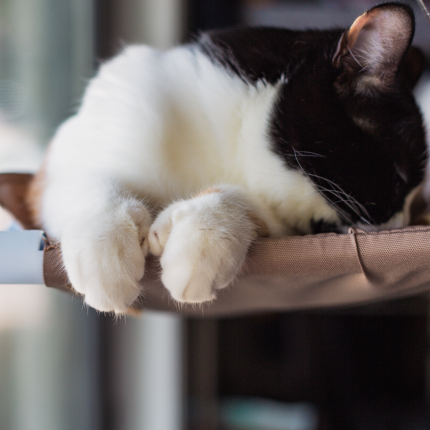Does My Cat Know When I’m Sad?
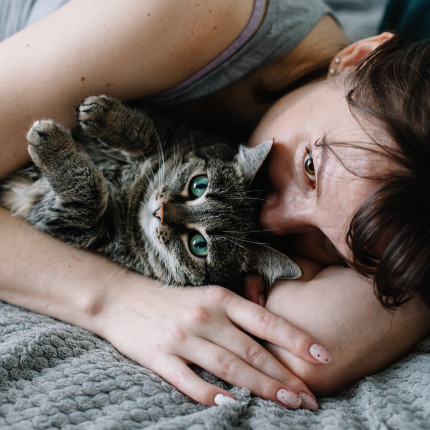
Cats can develop an emotional bond with their owners that many people believe is unmatched by dogs. While some cats will sleep near or on top of you in the morning, this may be because they want warmth from your body temperature rather than showing love for what is going through a rough spot; however, even these breeds have emotions too!
Whether our feline friends can sense when we are sad does not seem so simple – while most show affectionate behaviors at certain times during the day.
advertisement
Cats can tell by how we behave if something is wrong with us, and they want to help! Not only will they come closer while rubbing against our legs or sitting on top of us, but sometimes it might even seem like their mood changes too: one minute he will be happy as could be, whereas minutes later, all his energy seems focused at staying away from humans.
Cats are like us in many ways, including their attachment to humans. A 2019 experiment testifies that cats with favorite owners displayed less stress when they were around them than those without special bonds or relationships – this is like how children feel about their parents!
Cats also seem capable of distinguishing between happiness and sadness though we cannot say for certain if felines understand what makes one emotion versus another. The undeniable connection between humans and cats has always been mutual adoration. Still, our feline friends not only understand what makes you happy but sad- they may even be able to distinguish between different emotions! Anecdotal evidence suggests this possibility with many stories about how cats’ behavior changes depending on their moods.
Of all the animals in our lives, cats have been most strongly associated with humans. They have lived alongside us for 12 millennia. During this period, they have taught themselves what it means when a human voice sounds sad or angry from across the room – even if said person is not speaking any language that translates into “I’m feeling down today.” Cats understand emotions because both parties know exactly how each other feels without having to elaborate on their feelings through words or actions–it is just understood! This understanding can also be seen by watching feline movements, which will change depending on whether an individual is happy/unsure.
Cats can read people’s emotions
because they are close to their owners. If your cat likes you, it will be following all the things that make its owner happy and sad or angry too!
A lot about being a pet goes into understanding what these animals need from us for them not only to survive but also thrive as companions–and there is no better judge when figuring out if something seems amiss than our furry friends themselves. Cats are naturally inclined to take notice of their owner’s daily habits and routines. As soon as you deviate from your usual schedule, the cat will immediately sense that something is off kilter in order not just rely on exterior signs but also experience what is happening internally.
A study by Drs Phelps & Bellinger found “that cats show more interest towards individuals who display sad facial expressions.”
Cats know that you might be having a rough day when they do not get fed on time, so your furry friend will look for cues from YOU as to why it is happening or what happened to ensure everything is all right! Suppose she does not receive any answers (or gets none). In that case, things can quickly turn into kitty fits—made worse by how stubborn these little brutes tend to be with themselves, especially if something happens, like losing half their body weight because of lazy eating habits.
Cats have a special skill to detect voice changes and can tell if you are sad. If your kitty senses something is wrong, she will produce questions on how it feels for them too!
Attention
When you start neglecting your cat, it will eventually come to understand that something is wrong with the way he has been feeling lately because his favorite person in this world is not giving him what he needs anymore.
Cats thrive off affection, so when we stop playing games or gently touching them on their furry heads, they might never want anything more from us again!
Cats have a special sense that can detect negative energy fields and even tell when their owners feel unhappy. Some people think this ability comes from the spiritual force called “chi,” which many cats represent in pop culture today with its black-furred form still intact despite evolving into different breeds having longer hair colors than ever before because it’s no longer just limited only by physical appearances but also What Type Of creature you believe your kitty belongs too.
advertisement
Cats have a way of telling us when they are sad.
Cats have a way of telling us when they are sad. Or in distress. It is not through emotional outbursts but with their body language and sounds that cats communicate how we feel about ourselves-whether happy, contented, lonely, etc. When you are feeling downcast, the most common reaction will be an affectionate interaction like getting close to offering comfort while rubbing against one another legs which shows love without words necessary.
Cats are often accused of being emotional support animals because they try to comfort people by licking or lying on their chests. However, there is no substantial evidence that purring has a healing effect on humans; the frequency range of 20-140 Hz may be soothing enough without achieving any medical benefits whatsoever!
Did you know that when mammals feel loved, they release oxytocin? A 2018 American Journal of Veterinary Research study shows dogs have five times more of this hormone than cats. This means dogs’ expressions are typically warmer and friendlier, while their body language may seem less engaged or attentive with a cat who does not receive as much affection from its owner!
What Do Cats Feel?
Cats can feel sadness, anger, and fear just like humans. They also experience jealousy for their loved ones’ attention from other cats in the household or even when someone else gets more play time with you-so. Watch out! If these emotions were verbalized by my cat Petsy she would say, “I’m bored,” because that is what she does best – she spends tons of hours sleeping through anything remotely exciting (including me).
Cats can be depressed for many reasons, ranging from mental to physical. However, it is important not only to give them enough attention but also entertainment until their happiness levels improve significantly.
Conclusion
You should always keep your cat engaged in some form of activity or another because being bored leads most animals (including cats) into depression! Your cat knows when you are sad. Thanks to emotional intelligence, attachment, and evolutionary history for that ability – cats can perceive our emotions through behavior patterns in ways we can’t quite understand yet (I’m sure there’s something chemical involved), but they do want us around so much more than before because of how deeply touched by sadness their little hearts were made- even if it means sleeping close at night or laying on top during bad spells without being asked first like some kind stereo system keeping watch over its owner’s health while letting them rest easy knowing everything will be okay eventually.

Featured Articles
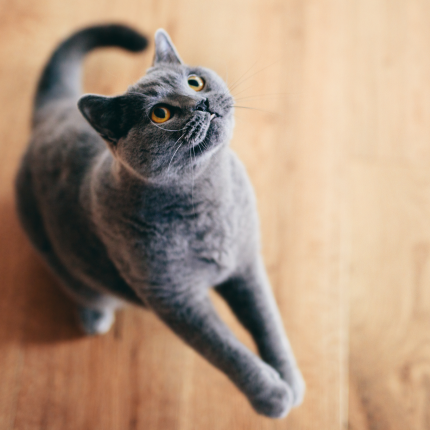
Greebles and Cats: The Origin and the Meaning
You may have seen an internet sensation concerning cats labeled “greebles.” Feel out of the loop? We’re here to help you. In 2019, Reddit user /user/literallyatree commented on a Reddit post about a cat that looks like it’s trying to slap a ghost. This user commented: “My family calls things…
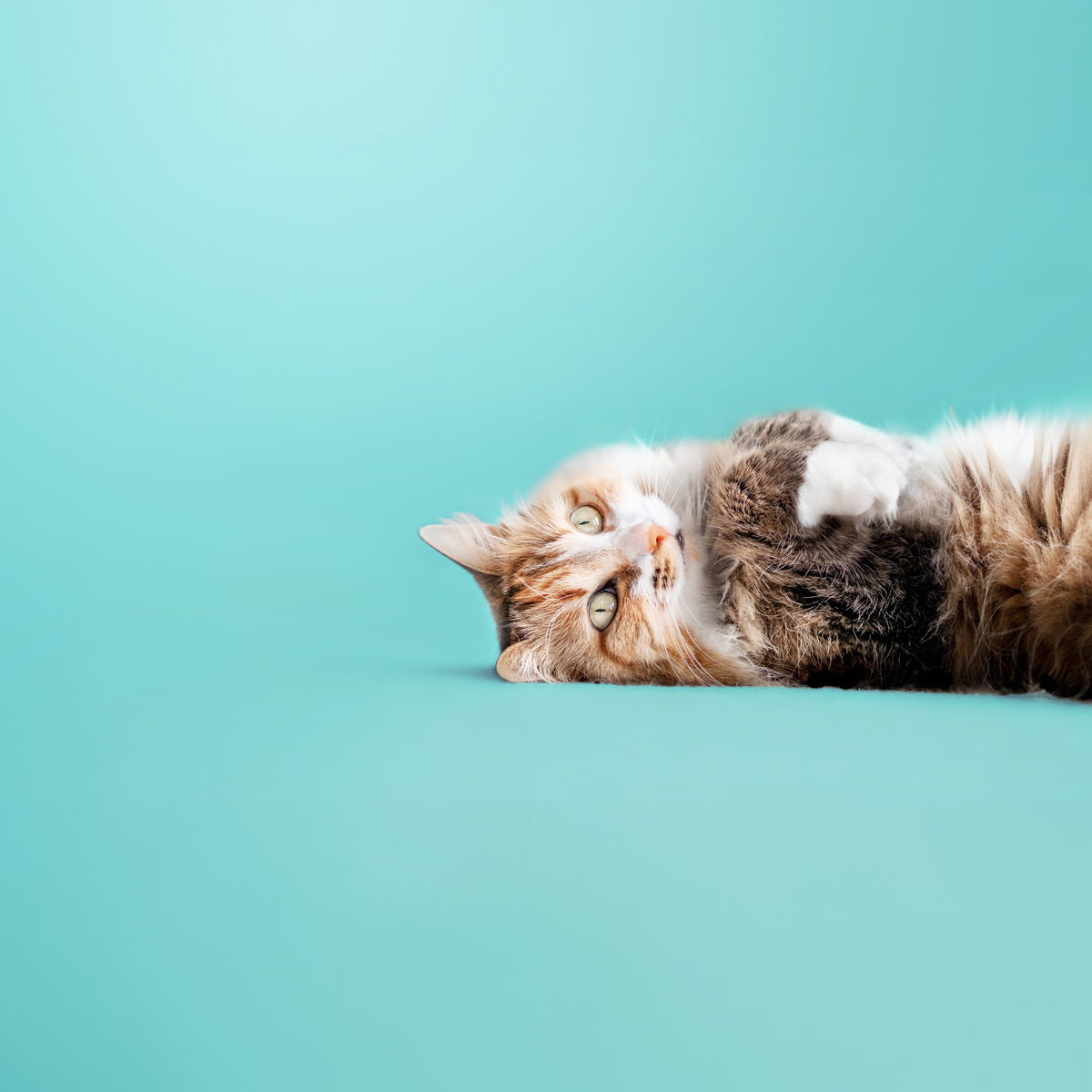
Why Do Cats Roll Over Into Their Backs But Not Let You Touch Their Bellies?
It’s common knowledge dogs love to have their tummies rubbed when they freely lay down before you and roll onto their backs. But, if you’re also familiar with cats, you know that when they roll onto their backs with their bellies exposed, rubbing the belly will most likely result in…
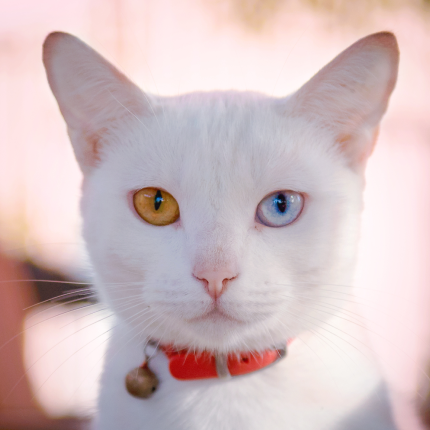
The Odd-Eyed Cat (AKA Heterochromia)
Cats are already beautiful and fascinating creatures, but people are bound to take notice when they have something as captivating as two different colored eyes. Odd-eyed cats always have one blue eye paired with either a green, yellow, or brown eye. This form of heterochromia occurs in other animals, including…
